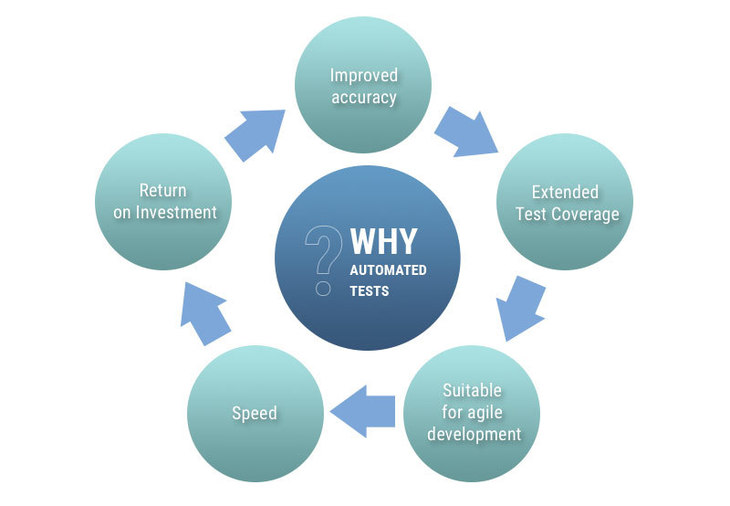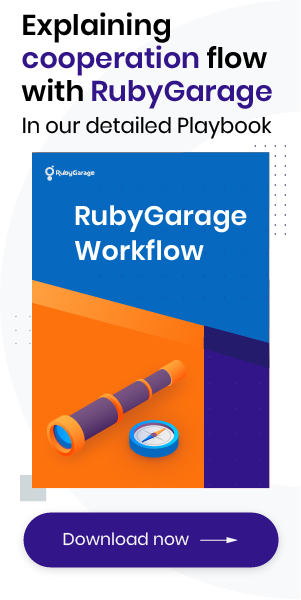-
Product Management
Software Testing
Technology Consulting
-
Multi-Vendor Marketplace
Online StoreCreate an online store with unique design and features at minimal cost using our MarketAge solutionCustom MarketplaceGet a unique, scalable, and cost-effective online marketplace with minimum time to marketTelemedicine SoftwareGet a cost-efficient, HIPAA-compliant telemedicine solution tailored to your facility's requirementsChat AppGet a customizable chat solution to connect users across multiple apps and platformsCustom Booking SystemImprove your business operations and expand to new markets with our appointment booking solutionVideo ConferencingAdjust our video conferencing solution for your business needsFor EnterpriseScale, automate, and improve business processes in your enterprise with our custom software solutionsFor StartupsTurn your startup ideas into viable, value-driven, and commercially successful software solutions -
-
- Case Studies
- Blog
Using automated testing in web development
To create a successful product, you must ensure it has no critical errors and bugs prior to the public release. This is obviously the competence of quality assurance specialists, who usually have a few approaches to make the testing process effective and thorough.
The first approach is manual testing, when each QA specialist performs various actions to compare the results with the expected behavior. Naturally, such approach should be repeated every time a new version is released to be sure that the modifications had not affected the functionality and performance of the project in general. Although it allows to be more precise in analyzing the software performance and to provide a deeper feedback on bugs and issues, it’s also pretty time- and resource- consuming.

Automated testing is the alternate route. Instead of doing the same things after each minor update, the QA team can create or take advantage of existing automation tools that help to automate the tests and compare their results with the expected behavior.
It may seem like automated testing is some kind of a panacea for all kinds of projects, as it saves time and resources, and is more reliable at a run. But, you need to consider the initial cost of automation before switching to it, as usually you are required to set up the automation tools and write scripts, which in turn require competent people and time. Also, automated testing is not a solution for early development stages when the product can be changed so dramatically that you will spend too much resources on the automation script maintenance.
Other than that, automated testing has only positive reasons to switch to and sometimes it’s the only adequate option available (like in continuous-integration projects with frequent build verification tests).
Here in RubyGarage we perform automated tests for each online product or service that we launch and maintain. We have considered several significant reasons to make such decision:

Improved accuracy
Manual work is appreciated in almost any project. However, in software testing automation means avoiding 100% of human mistakes. This is especially true in case of repeated execution of the tests that require almost no skills from a person yet are a significant challenge for his/her attention.
Extended Test Coverage
In case of online products, it is important to check the performance of, say, a site, under critical circumstances like extreme amount of users interacting with it. Automated testing tools allow to simulate such tests and collect results quickly and efficiently.
Suitable for agile development
Remember we said that automated testing is a bad idea on early development stages? It’s true unless you take advantage of agile development, where continuous testing practices apply through the whole development process. More and more companies are switching to Agile nowadays, which makes automated testing more and more popular among dev teams.
Speed
Every project usually has time constraints, and you often need to decide which tests are less prioritized and should be performed only after the deadline. Tests performed by automation tools are done much faster than manual ones, thus more bugs and issues can be found and fixed prior to the product release (or the next product development stage).
It’s profitable!
In the long run, test automation is more profitable and brings a higher ROI (return on investment) than manual testing. Created once, automation scripts and tests can be reused and rerun for an infinite number of times, and maintaining them usually requires almost no time and resources.
Having extensive experience in online services and products, we’ve found that automated testing is the only option if you want to achieve a fast development-testing cycle and require continuous maintenance of your products after its public release.
Here at RubyGarage we use a whole bunch of automation frameworks including Cucumber, RSpec, Capybara, PhantomJS, Selenium and other. To know more about the tools we use in our projects, visit our portfolio.









